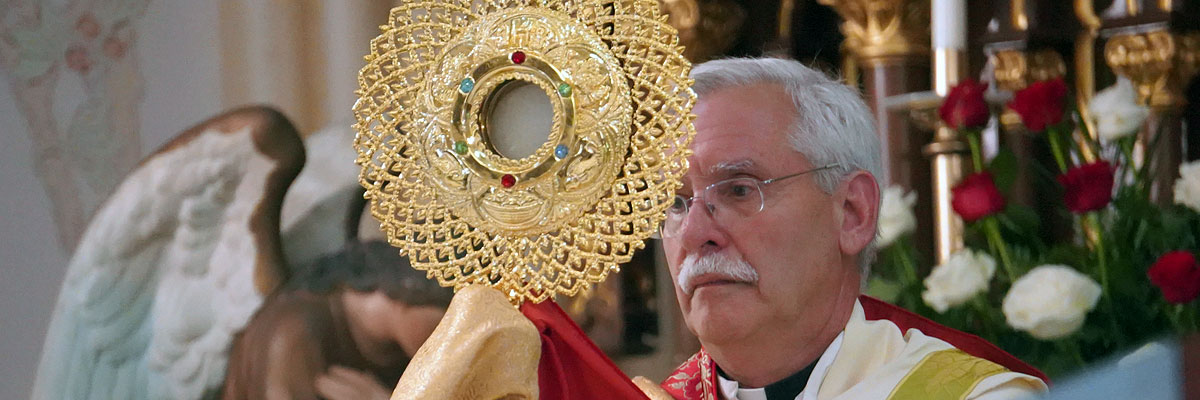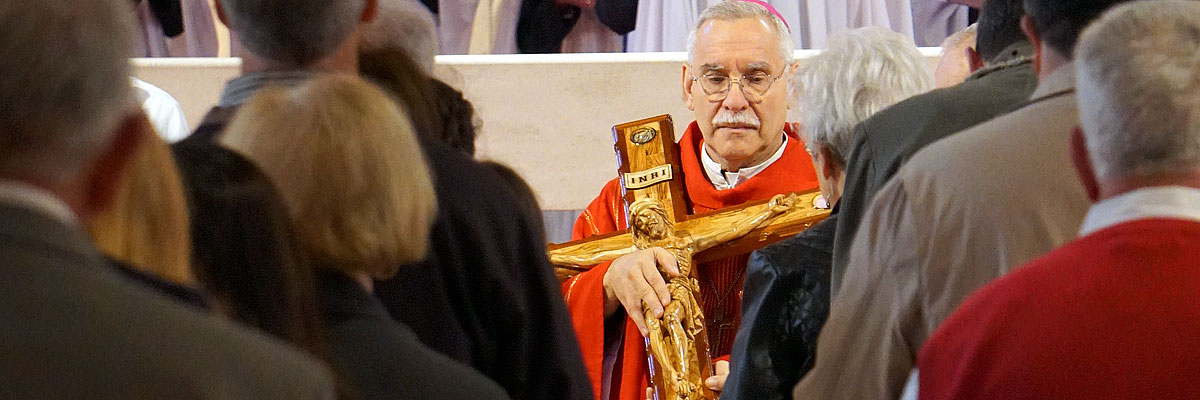Official Website of the
Catholic Diocese of Little Rock
Using Latin helps assembly experience universality of Catholic Church
Published: June 9, 2007
By Father James P. West
“The use of the Latin language, with due respect to particular law, is to be preserved in the Latin rites.” Sacrosanctum Concilium, 36 “Clearly, Vatican II never envisioned the loss of Latin in the Church’s liturgy, yet that is what happened in so many places.” Heritage and tradition are big in the Roman Catholic Church. Concerning language in the Mass, we have two great traditions in our Church: Greek and Latin. The first European language of the Mass was Greek, and with the passage of time, Latin replaced Greek as the language of the sacred liturgy in the Western rites of the Church, leaving Greek as the traditional language of the Eastern rites. Even our original historical Hebrew roots are present in the Church’s liturgical prayer. The Second Vatican Council of the 1960s issued its “Constitution on the Sacred Liturgy,” otherwise known as *“Sacrosanctum Concilium,” which launched the reform of the sacred liturgy of the Catholic Church. One of the aspects of this reform was the introduction of the use of the “vernacular” languages, the spoken languages of the world. “Sacrosanctum Concilium” placed before the Universal Church the following: “The use of the Latin language, with due respect to particular law, is to be preserved in the Latin rites,” (SC, 36), and “A suitable place may be allotted to the vernacular in Masses which are celebrated with the people, especially in the readings and ‘the common prayer,’ and also, as local conditions may warrant, in those parts which pertain to the people ... . Nevertheless care must be taken to ensure that the faithful may also be able to say or sing together in Latin those parts of the Ordinary of the Mass which pertain to them.” (SC, 54) Latin was to be retained in the worship of God along with the Greek, “Kyrie elieson” (Lord have mercy), the Hebrew, “alleluia” (praise the Lord), “hosanna” (Lord save your people) and “amen” (So be it). Now Latin is making a comeback in various parishes, taking its place beside the vernacular. Our late Holy Father Pope John Paul II and the current Holy Father Pope Benedict XVI have for years been leading what is commonly called “the reform of the reform,” an attempt to bring the Church back from some of the excesses and liturgical abuses of the post-Vatican II years. As part of this “reform of the reform,” the use of the Latin language within the sacred liturgy is being encouraged. It is the intention of the Church that the faithful be able to experience something of the universality of the Catholic faith in time and place, as well as the mystical beauty of the Mass by the use of the Latin language. So the next time you sing the Greek, “Kyrie elieson ...” or the Latin “Sanctus, Sanctus, Sanctus ...” and “Agnus Dei ...,” know that you are joining with your fellow Catholics around the world and through the ages in the Church’s own language of prayer to sing God’s praises. The “reform of the reform” is underway. Father James P. West is the pastor of Immaculate Conception Church in North Little Rock.









